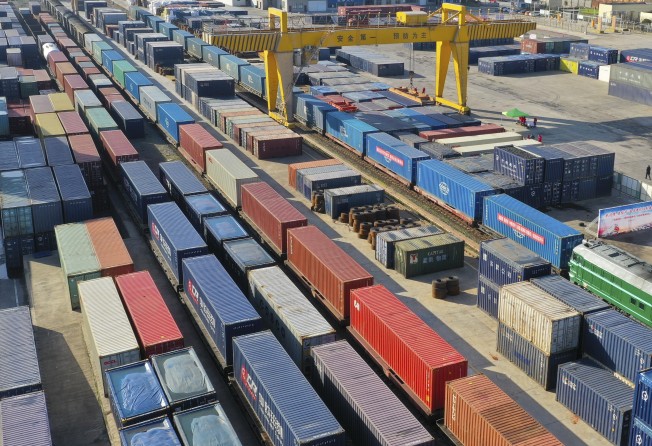Logistics and delivery companies see profits soar as coronavirus boosts e-commerce, demand for medical goods
- Hong Kong’s Kerry Logistics is among firms seeing healthy growth as its freight business benefits from a boom in medical goods deliveries
- Logistics companies face challenges in the post-pandemic era, as many of the businesses they rely on shrink or close down altogether in what promises to be a prolonged global recession

Logistics and delivery companies have been boosted by a surge in demand for medical goods and online shopping amid the coronavirus crisis, with some recording triple digit surges in profit.
But they will have to readapt in the post-pandemic era, as many of the businesses they rely on shrink or close down altogether in what promises to be a prolonged global recession.
Hong Kong-based Kerry Logistics Network, owned by Malaysia’s richest man Robert Kuok, foresees a double-digit percentage gain in earnings for the first half that is likely to extend to the whole of 2020, its chief financial officer Ellis Cheng said in an interview.
“The cross-border cargo freight businesses now are mainly related to Covid-19, for example, masks, protective medical gowns and ventilators,” Cheng said.
He said clients are not too sensitive to the price of the goods or delivery, which has “helped us earn a decent profit.”
Kerry Logistics, which generates most of its revenue in Asia, operates in three major business segments – international freight forwarding, logistics operations such as storage and distribution, and leasing of warehousing space.
The company’s peers in mainland China, especially ones that deliver direct to consumers, have also recorded big gains during the pandemic, even in the face of increased costs and disruption to global transport networks.
In the first six months of the year, 34 billion packages were delivered in China, up 22.6 per cent year over year, according to China’s State Post Bureau. Delivery revenues increased 12.6 per cent to 382.6 billion yuan (US$54.6 billion) from a year earlier.
Boosted by strong business volumes, China’s leading delivery service firms have seen their stock market valuations soar. Shenzhen-based SF Holdings’ share price has surged 92 per cent so far this year, while YTO Express has gained by almost a quarter in the same period.
“Logistics and delivery companies that mainly target consumers are growing fast as they are being boosted by the acceleration of online shopping during the pandemic,” said Yang Xin, head of transport and infrastructure research at CICC Research Department.
“But logistics firms that are mainly serving businesses depend on the progress of the resumption of work and production [for growth].”
China’s business-to-business logistics companies are being dragged down by the slow economic growth compared with pre-pandemic levels, she said.
In other parts of the world, Deutsche Post DHL Group, a German logistics company, expected operating profit to surge 16 per cent to around €890 million (US$1.06 billion) in the second quarter, thanks to gains in shipment volumes through e-commerce. It also predicted operating profit of between €3.5 billion and €3.8 billion for the whole year.
American delivery giant FedEx, meanwhile, reported net income of US$1.3 billion in the financial year ended May 31, a huge 138.1 per cent increase from the previous year.
But the global economic slump and its effect on business growth caused by the health pandemic poses risks for logistics companies, Cheng warned.
“We can’t grow larger when clients are not growing larger,” he said. “When the goods that we are transporting become less, our income declines.”
The financial support, and relief on tax and fees offered by many governments is helping, he said.
“But we believe the government aid will not last long, and once it is suspended we are concerned that problems will arise,” Cheng said.